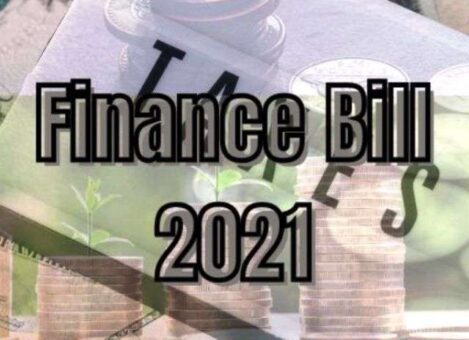KARACHI: Finance Minister Shaukat Tarin while presenting budget 2021/2022 has announced certain relief measures and major policy changes in the taxation regime through Finance Bill, 2021.
In its commentary on budget 2021/2022, PwC A.F. Ferguson & Co. Chartered Accountants, the Finance Bill 2021 represents the first budget presented by the current Finance Minister and effectively third by the Current Government.
As announced by the Minister in the pre-budget sessions, certain relief measures and major policy changes in the taxation regime have been made part of the Finance Bill.
The significant amendments aim to revive the economy and to facilitate the businesses include following:-
a) Introduction of Special / simplified tax regime for Small & Medium Enterprises engaged in manufacturing sector;
b) Final tax regime for export of services;
c) Reduction in general minimum tax rate from 1.5% to 1.25% with an enabling provision to carry forward the minimum tax for loss making entities;
d) Telecommunication companies included in the definition of industrial undertaking;
e) Reduction in capital gains tax rate for securities traded on stock exchanges;
f) Abolishment of 12 withholding tax provisions including on cash withdrawals and other banking transactions;
g) Saving the benefits accrued under expired / repealed exemption provisions;
h) Facilitative provisions relating to exemption certificates for corporate sector and tax credit entities;
i) Adjustment of losses allowed against income from property;
j) Curative amendment for minimum tax exemption on Special Economic Zone entities;
k) Rationalisation of amendment proceedings and introducing time limit for finalization of income tax proceedings;
l) Abolishment of sales tax on advances;
m) Increase in threshold for sales tax exemption of Cottage industries;
n) Exemptions and concessions introduced for Special Technology Zones;
o) Introduction of a new concept of Border Sustenance Market and its related concessions and exemptions;
p) Zero rating on export of services from Islamabad Capital Territory; and
q) Exclusion of listed companies from the restriction on claim of input tax beyond 90% of output tax.
As earlier indicated by the Finance Minister, specific provisions in income tax have been introduced empowering the relevant Officers to arrest persons involved in concealment of income. In the environment of Pakistan, such powers need to be exercised very carefully so as not to result in undue harassment to the taxpayers. It is therefore suggested that these provisions may need to be re-evaluated for providing some preliminary mechanism of adjudication or approvals to ensure that the principles of natural justice and fair trial are adhered to.
The difference in tax rates between corporate and non-corporate taxpayers is not allowing proper corporatization mainly due to higher incidence of tax on dividend income particularly in case of inter-corporate dividends other than 100% wholly owned groups. In line with international best practices, there is a need to reconsider the overall tax regime for dividend income especially for inter-corporate dividends which is essential to convert non-corporate businesses into documented corporate sector entities.
Furthermore, tax credit relating to new industrial undertakings particularly for equity-based projects may also need to be reinstated especially for those sectors where the manufacturing involves local raw material and transfer of technical knowhow from abroad.
Through Finance Act, 2019, a positive step was taken to convert various final tax withholdings into minimum tax and it was expected that eventually the same would lead to complete income based taxation regime. However, so far, no such steps have been taken and instead a higher tax incidence is being retained for certain services sector which need to be rationalized. Needless to say, such minimum tax regime is only hitting the sectors which are dealing with documented customers whereas other players of same sector dealing with non-withholding agents are being taxed at a lower rate. Furthermore, there is no specific provision allowing the carry forward of minimum tax paid in this manner. All these issues require a serious consideration.
Keeping in view the level of documentation in Pakistan economy, there is a need to effectively utilize the online marketplace and similar platforms for gathering information for undocumented business sector instead of imposing tax on such platforms under the garb of sales tax provisions. It is suggested to have a transitional road map for this purpose.
Certain measures have been taken which result in further enhancement of tax incidence on salaried taxpayers, such as withdrawal of exemption on medical allowances and reimbursements as well as taxation of interest beyond certain threshold earned from retirement benefit schemes. Both these actions need reconsideration.
Reduced rate of withholding tax on certain services has been introduced only for resident taxpayers thus creating a discriminatory treatment for non-residents engaged in similar services. It is expected that the Finance Act, 2021 will take corrective measures to remove this anomaly.
The proposal relating to the manner of taxing gains on disposal of immovable business property is likely to create an anomalous situation which requires redressal.
To maintain the confidence of business and investors, it is expected that the relief measures will not be disturbed through frequent amendments by way of supplementary finance bills during the next fiscal year. Continuity of tax policy is key to the sustainable economic growth.


